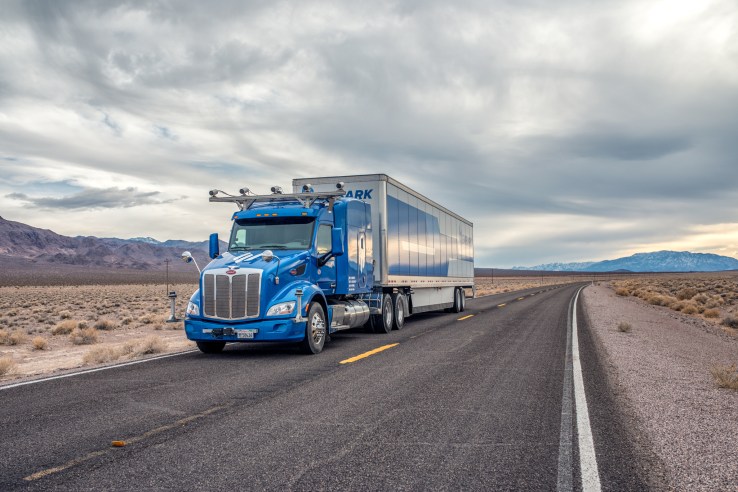
Self-driving trucking startup Embark has raised $15 million in Series A financing, the company announced on Tuesday. Embark first broke cover back in February, when it revealed trucks equipped with its neural net-based deep learning approach to autonomous trucking. The startups also revealing a team-up with heavy equipment manufacturer Peterbilt today, which will help it roll out its new group of test trucks.
The funding is led by Data Collective, and includes participation by YC Continuity, Maven Ventures and SV Angel. It will help Embark hirenew talent for their engineering team, and add more trucks in order to help expand their test fleet across the U.S., with the aim of gearing up for a broad commercialized launch. Embarks post-money valuation following this round is $75 million.
Embark originally built its test prototype on a Peterbilt 579 truck, and so the formal partnership with the semi truck maker is an exciting development, according to Embark CEO Alex Rodrigues. Peterbilt will be building the new test trucks for Embarks fleet custom at its Denton, Texas factory, in order to help better tailor them to the startups needs.
The advantage of Embarks approach, according to DCVC Managing Partner Matt Ocko in a statement, is that theyre producing top-notch real-world driving results far more quickly and on far less capital than anyone else. Embarks solution offers great performance without requiring advance exhaustive mapping of all U.S. roads, he notes, which will cut down the time it takes to bring it to market.
Embark is also focusing on handling freeway driving, with a human driver on board who navigates city streets. Still, taking the freeway scenarios out of their hands should eventually mean that drivers can do more loads per day, increasing efficiency, cutting cost and addressing demand for trucking that is outpacing driver supply. This, combined with the relatively low cost of Embarks tech, should help U.S. truckers essentially purchase themselves a virtual employee in the form of semi-autonomous trucks, while still retaining work, the company says.





![[Video] How to get rid of bed bugs in Toronto](https://www.thehowtozone.com/wp-content/uploads/2019/10/maxresdefault-2-100x70.jpg)


